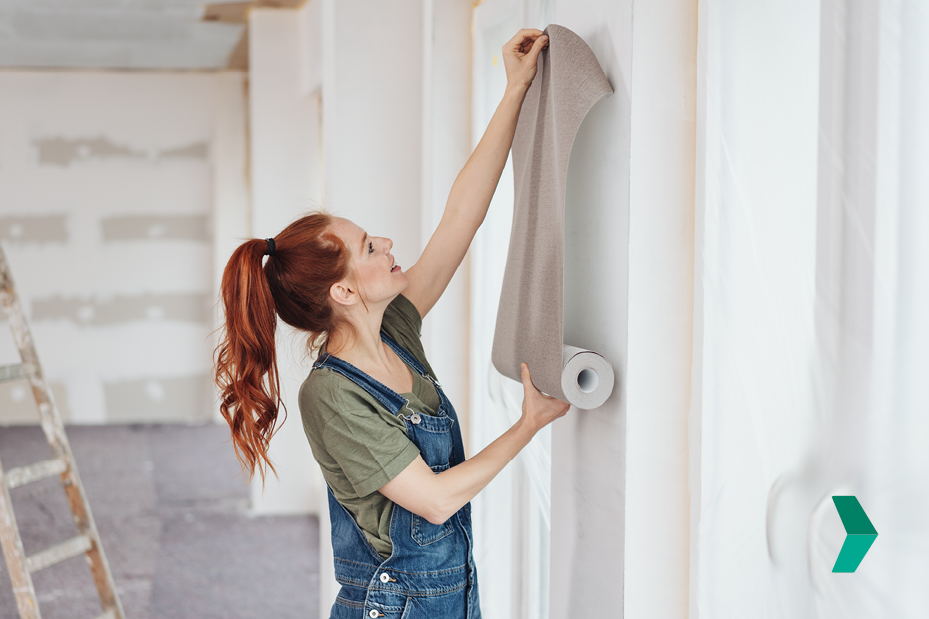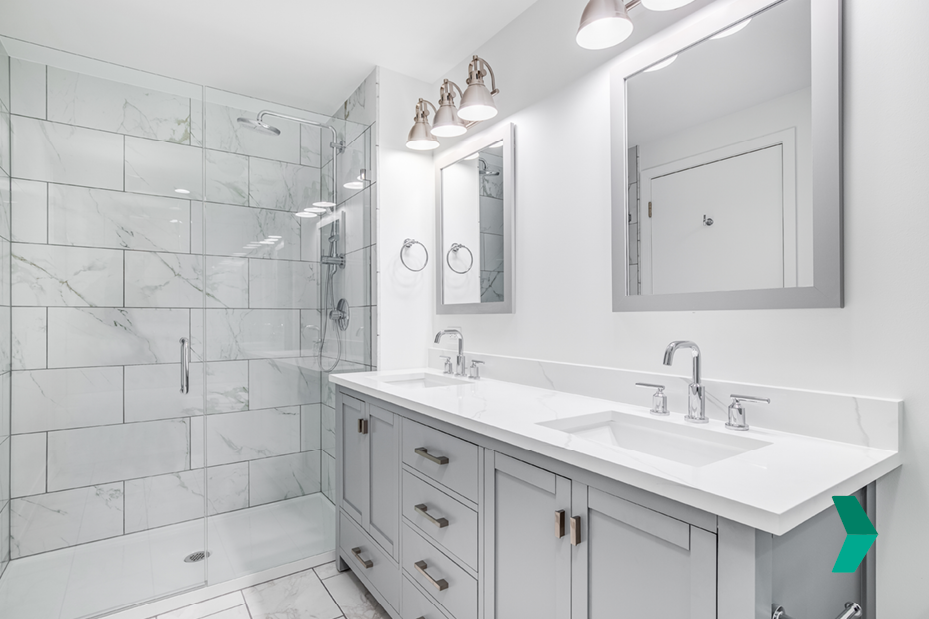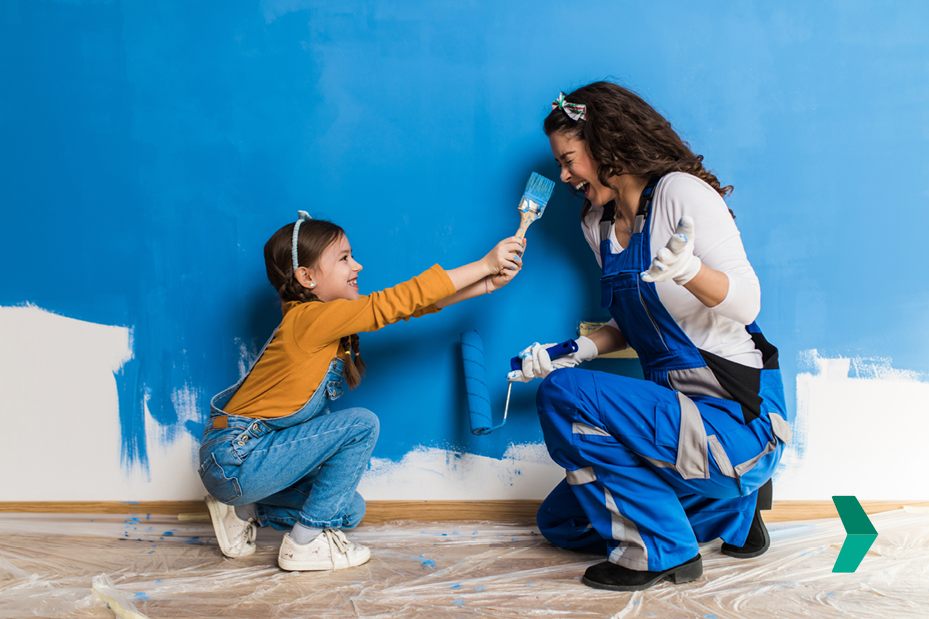Want to Boost Home Value? Home Renovation Costs Baked into Your Mortgage
Elise Jansen, CMA, Sr. Mortgage AdvisorMarch 4, 2024 — 6 min read

In the world of real estate, home renovations aren’t just a fun upgrade—they’re a financial game-changer. In fact, recent studies highlight the impact of strategic home improvements beyond curb appeal.
In 2022, home improvement spending increased from $328 billion in 2019 to $472, with an estimated spending of $485 billion in 2024, according to the Joint Center for Housing Centers of Harvard University (JCHS).
These numbers underscore the advantage that today’s home renovation loans provide savvy homebuyers and homeowners: namely, a simplified financing process with renovation costs built into the loan amount you're applying for, making it easier to afford the home of your dreams.
The Value of Home Renovations
Whether you’re a hopeful buyer or already own a home, it’s important to grasp the link between home improvements and property value. Renovation projects can vary from a simple paint job to a complex gut job. However, most homeowners believe that improving design and functionality is the most significant consideration when planning a remodeling project.
Emphasizing design and functionality isn't just about preference; it influences a property's appeal and market value. Buyers and renters are attracted to homes with visual appeal and practical features. Indeed, a well-executed kitchen remodel or the addition of an energy-efficient appliance can notably increase a home's market value.
Challenges of Funding Renovations Out-of-Pocket
Starting a home renovation without a funding strategy can leave homeowners facing unforeseen or substantial expenses.
Financial strain
Limited budget
Many homeowners operate on strict financial plans, leaving little room for unexpected or substantial expenses; as a result, setting aside significant sums while juggling routine costs, mortgage payments, and other obligations becomes a delicate balancing act.
Delayed renovations
The burden intensifies when faced with delayed renovations. Financial constraints may compel homeowners to postpone improvements, leading to higher costs over time. This procrastination can jeopardize the structural integrity of the home and its overall value.
High-interest financing
When owners lack sufficient out-of-pocket funds, they may turn to high-interest financing options, such as credit cards or personal loans. While these may provide immediate access to capital, the long-term consequences can be burdensome. High-interest rates contribute to increased overall project costs, making it challenging to recoup investment costs.

Missed opportunities
Increase in property value
Renovations can significantly enhance a home's market worth, but insufficient funds may restrict the scope of improvements. This missed opportunity can impact the potential return on investment, as your property may not appreciate as much compared to similar properties.
Curb appeal
Renovations can do a lot to enhance a home’s aesthetic appeal. However, without adequate funds, homeowners may have to compromise on exterior enhancements, landscaping, or other elements that contribute to curb appeal. This can affect the home's first impression, impacting resale value.
Competitive disadvantage
In real estate, properties with modern, updated features often have a competitive edge. Buyers may be drawn to properties with superior features, leaving homes with insufficient improvements at a disadvantage. This can result in a longer time on the market and price reductions.
Energy efficiency and cost savings
Renovations aimed at improving energy efficiency, such as upgrading insulation or installing energy-efficient appliances, contribute to environmental sustainability and lead to long-term savings.
Top Home Renovations to Increase Property Value
You likely already have a list of home renovations that would be fantastic to tackle, but prioritizing them is key. While most home improvements won’t give you a 100 percent return on investment, some provide a higher return on investment than others. The return on investment for a home renovation relies on several factors, including:
- State of the real estate market
- Location
- Project type
- Timing
Here are some common renovations that homeowners frequently choose to finance through their mortgages:
Kitchen remodel. The kitchen considered the heart of the home, warrants a modern, functional space aligned with contemporary design trends. This may involve upgrading appliances, installing new countertops, replacing cabinetry, and enhancing lighting fixtures in a remodel.
Bathroom remodel. Often, upgrading bathrooms goes beyond functionality. Renovations of this sort may include upgrades to showers and tubs, installation of new vanities, improved lighting, and the incorporation of stylish flooring.
Garage door replacement. Garage door replacement enhances curb appeal by providing a cost-effective way to elevate the home's exterior aesthetics. Selecting a modern door that complements the overall architecture will help you make a lasting first impression.
New interior paint. This is a quick and easy way to breathe new life into an old space. Thorough preparation, thoughtful color selection, and professional application ensure a high-quality finish.
Entry door replacement. The entry door is a focal point and sets the tone for the entire home. It’s important to select one that is durable, aesthetically pleasing and complements the home's style.

Home Improvement is Not Home Maintenance
This is a common misconception for new homeowners— assuming that basic, expected features like a new roof automatically increase home value. While these may influence buyers to pay less if they're in poor condition, they aren't necessarily drivers for paying more.
RELATED: No Sweat Summer Home Maintenance Checklist
Picture it this way: home renovations make your home larger, superior, and/or more contemporary, while maintenance ensures it stays in working order. They’re both important, but renovations have the power to elevate your home's value.
RELATED: From Leaves to Snow: Your Guide to Cold-Weather Home Maintenance
Financing Home Improvements
203K Rehab Loans
Did you discover the ideal home in the perfect neighborhood, but the kitchen and bathroom need updates? This is the ideal solution for an almost-perfect property—utilize a 203K Rehab Loan to acquire, renovate, or repair your dream home. Click here to learn more.
RELATED: Want to Finance a Fixer-Upper? Pros and Cons of a 203K Rehab Loan
Cash-Out Refinance
Unlock the equity you've accumulated in your home through a cash-out refinance. This process provides a lump sum based on the value of your home's equity and replaces your existing loan with a new one, often featuring a lower interest rate, a shorter loan term, or both. Click here to learn more.
RELATED: Love Your Home? Skip the Chocolate—Speak Your Heart with a Cash-Out Refinance
Home Equity Line of Credit (HELOC)
Cash is often the preferred choice for financing home improvements, but if unavailable, a reliable alternative is a Home Equity Line of Credit (HELOC). This loan allows homeowners to convert their home equity into a line of credit accessible during a predetermined draw period. Click here to learn more.
Get Started Today
You have the knowledge—now, pair it with expertise from your neighborhood Mortgage Advisor, or click here to receive a customized quote today.
Keywords:
Categories
Archives
Recent Posts
You bring the dream. We'll bring the diagram.
There’s a financing solution for just about every situation.
I felt like I was treated like family, great communication and helping me with any questions I had.

You bring the dream. We'll bring the diagram.
There’s a financing solution for just about every situation.
Where does your sun shine? Find your local advisor.
Enter your city or state to see advisors near you.
We’re growing. Grow with us.
Careers at PacRes reward excellence in mortgage banking.
Build a better tomorrow